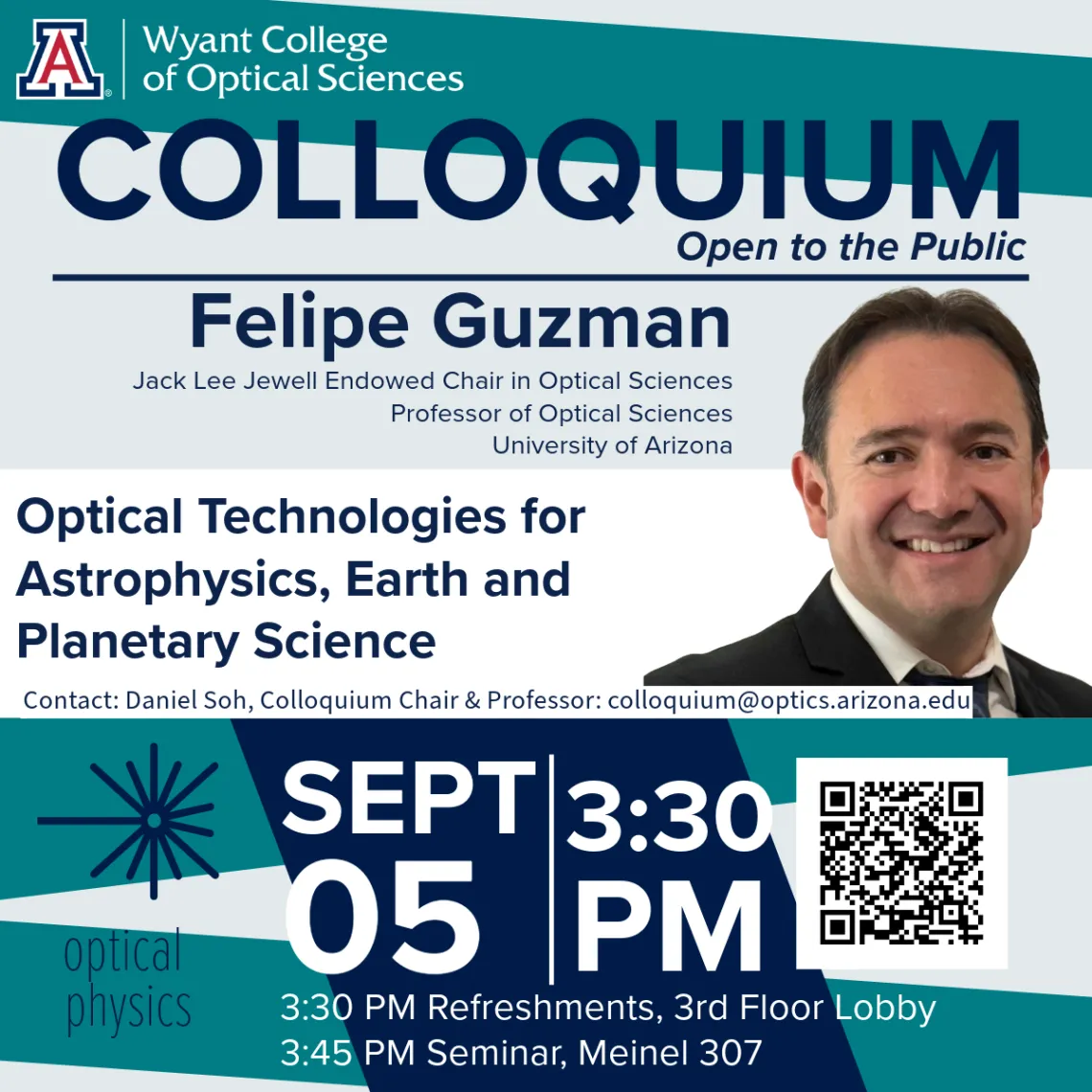
When
Where
Title
Optical Technologies for Astrophysics, Earth and Planetary Science
Abstract
Coherent light enables length measurements of exquisite sensitivity that lie at the core of fascinating technological advances and engineering applications, as well as observations in fundamental physics, astrophysics, geodesy, and measurement science in general.
Novel technologies and measurement principles find application in areas that are paradigm-changing; not only in fundamental science, but that directly impact the global economic and political stage. Detections from ground-based gravitational-wave observatories, like LIGO and VIRGO together with measurements of their electromagnetic counterparts, have opened a new window to observe the universe’s gravitational spectrum and have reshaped astronomy and astrophysics through Gravitational Wave and Multi-Messenger observations. Plans for future observatories in space, such as LISA, are well underway with the extremely successful LISA Pathfinder mission and the formal adoption of ESA. Moreover, GRACE follow-on continues GRACE’s legacy of providing information regarding climate change and our planet’s geo-dynamics through valuable observations of the Earth’s gravitational field, and developments are well advanced for subsequent missions both in the USA and Europe.
At the core of these exciting scientific endeavors lie innovative optomechanical technologies and precision laser interferometers that make this all possible. In my presentation, I will comment on these applications and discuss the research work conducted in my research group at the University of Arizona on the advances and implementation of novel optomechanical technologies in areas of precision measurements, inertial sensing, and scientific space missions.
Bio
Dr. Guzman is an experimental physicist specializing in space optical technologies, inertial sensing, novel optomechanical sensors and precision laser interferometry. He is a professor and holder of Jack L. Jewell endowed chair at the Wyant College of Optical Sciences in the University of Arizona (UA). He is the principal investigator of the UA groups in the international LISA Mission Consortium, and the LIGO Scientific Collaboration. He received his Bachelor’s degree in Electrical Engineering at the University of Costa Rica, subsequently moving to Germany to obtain a Master’s degree in Engineering Physics at the University of Oldenburg in Germany, and a Ph.D. in Physics from the Max Planck Institute for Gravitational Physics, where his doctoral research focused on the development of optical technologies for LISA, LISA Pathfinder and GRACE follow-on. He was awarded a NASA Postdoctoral Program (NPP) fellowship at NASA Goddard Space Flight Center and later performed as Senior Research Associate at the National Institute of Standards and Technology (NIST), and Research Group Leader at the German Space Agency (DLR) in collaboration with the University of Bremen.
Can't Join Us In Person?
Register for the Zoom Webinar!
Subscribe to Upcoming Colloquium Announcements
Visit our website for future lecture dates and speaker information
